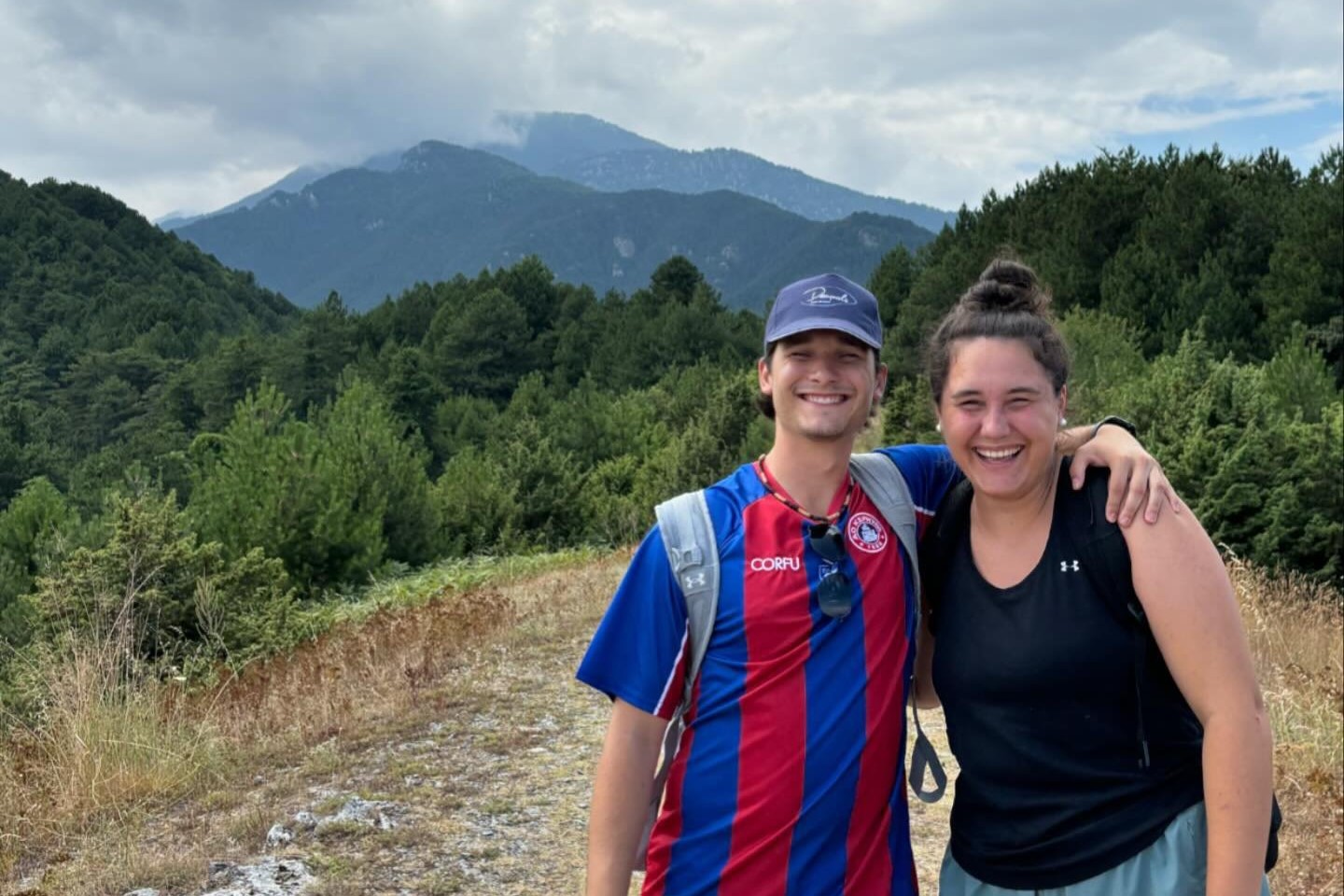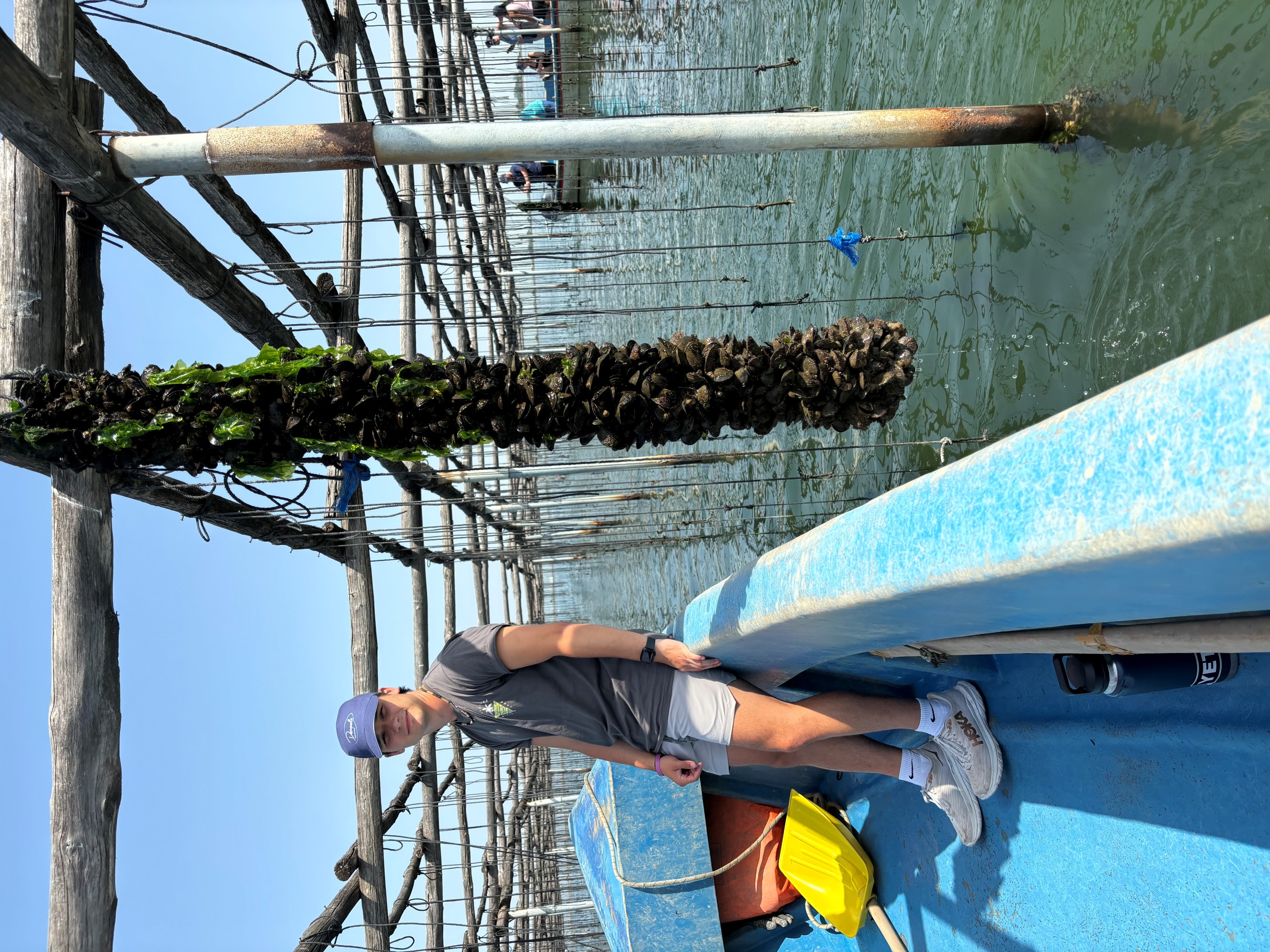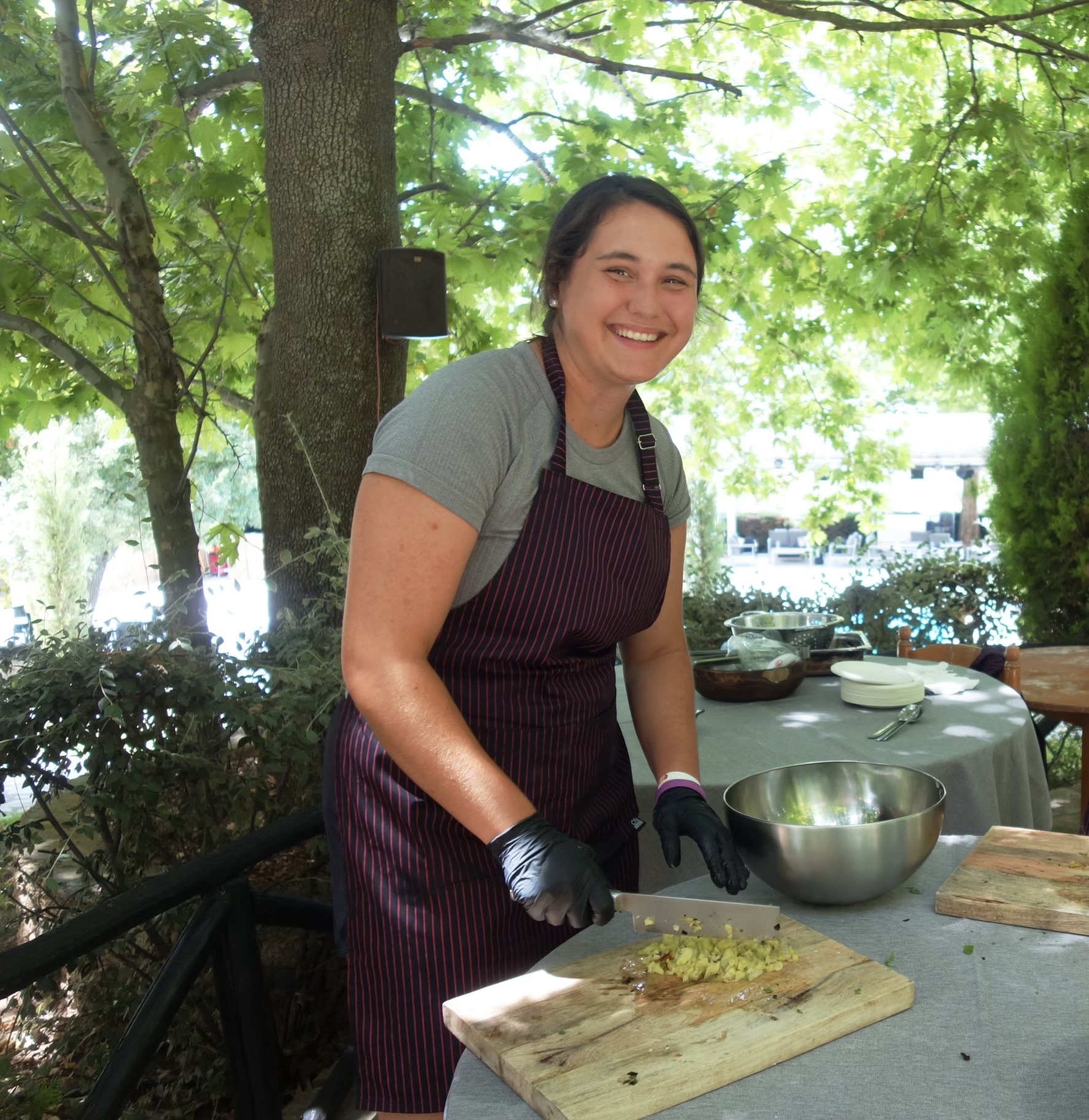Siblings explore the Mediterranean diet in Greece
Provided
RIT students David and Chloe Brassie studied the Mediterranean diet in Greece this summer.
RIT students David and Chloe Brassie experienced Greek culture this summer through an immersive program that focused on food as cultural heritage.
When David, a third-year exercise science major, heard about the study abroad program offered through RIT Global, he was determined to go and to take his sister with him. At the time, Chloe, now a fourth-year dietetics and nutrition BS/MS major and a former “homebody,” needed convincing, and David succeeded.
In June, the Brassies left for the six-week program at Perrotis College, where they would study the Mediterranean diet and Greek culture. They joined four other students from RIT’s College of Health Sciences and Technology, and peers from universities in Iowa, Texas, and Pennsylvania at the American farm school in Thessaloniki, Greece.
David Brassie visits a mussel farm.
The curriculum included food-related field trips, hikes through ruins on Mt. Olympus, and sailing on the Aegean Sea. They also learned traditional Greek dances and home-style cooking.
The Mediterranean diet class took a close look at the chemistry and interactions of the food that make it a healthy way of eating, David said. It covered “what physically happens inside your body and why these foods are so good for you. We went in depth about olive oil and how Greeks use it in many different ways and how those fatty acids interact with your body systems.”
They also learned about what the Mediterranean diet means in the 21st century.
The term, introduced in the 1960s, refers to traditional eating habits in the Mediterranean region that centered on fresh vegetables, seafood, nuts and legumes, and olive oil, and an active lifestyle.
“The first thing that the ‘Med diet’ teacher told us was, ‘You’re all here to study the Mediterranean diet. It doesn’t actually exist in Greece,’ David said. “It is still prevalent in 2024, but to say that everyone in Greece eats the Med would not be true.”
David was grateful for a trip to an inland village that had not seen a heavy influence of big corporations and contemporary lifestyle change, and he savored the experience. “We traveled up a mountain to a secluded town on top of the mountain, and we ate food there and talked to the locals.”
Chloe Brassie grills an eggplant during a cooking class.
The contrast between the Mediterranean diet from 50 years ago to today was prevalent in the Brassies’ classes and observations. They visited mussel farms to see traditional and new harvesting methods and compared different farmers’ markets.
“The old market has a lot of fish on display,” Chloe said. “You can find almost any part of an animal, like liver or sheep’s head. There is little waste.”
The heart of the Mediterranean diet is about family and friends gathering together and lingering over simple food, Chloe said. “Eating is a family activity that can take hours.”
Eating and preparing traditional dishes cannot be rushed. For example, a popular cheese pie Chloe made in cooking class with phyllo dough and feta cheese required two hours to bake in an outdoor wood oven.
Chloe noted the tension between traditional and contemporary living. “It’s like here,” she said. “The younger generations are out and about, and it’s easier to grab food out. They do family style eating where you get a plate and order different things, and so that is a different concept from here.”
The Brassies enjoyed the overall “chill” approach to life in Greece. They adopted the expression, “halara,” which means “’to relax’ or ‘take it easy’ because there is always tomorrow,” Chloe said. It resonated with them as a life lesson.
“When we were saying goodbye to our professor, he made a comment that, ‘I don’t understand why you Americans are always so stressed out. There is always tomorrow,’” Chloe said.
Along with their new perspective, the Brassies gained confidence from traveling to Europe for the first time. Their time abroad has opened the door to new adventures.
“Maybe I could do my whole graduate studies abroad,” David said. “I also really want to go back to Greece.”
Chloe agreed with her brother. The trip “kick-started a travel bug” for them. “You know it’s possible. You’ve traveled. The airplanes, the airports—now you know how all that works. Now, let’s go and travel and explore and see what’s out there.”
David and Chloe Brassie have a special relationship to RIT. Their mother, the late Kristen Pierce Brassie,’99 (hospitality and service management) is an RIT women’s hockey legend. In 1999, Pierce Brassie won the prestigious Hockey Humanitarian Award. In 2000, RIT retired Pierce Brassie’s jersey—the first such occurrence—and in 2007, inducted her into the RIT Athletics Hall of Fame. David and Chloe have early memories of attending RIT hockey games with their mother. Her legacy inspires David and Chloe as they prepare for careers in the health field.










